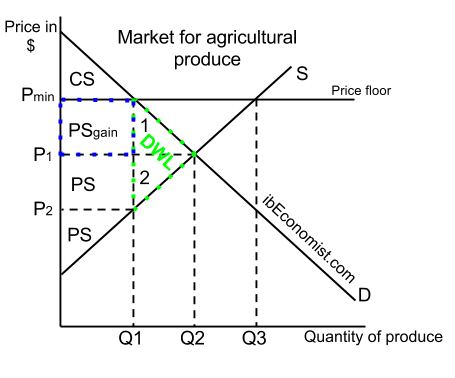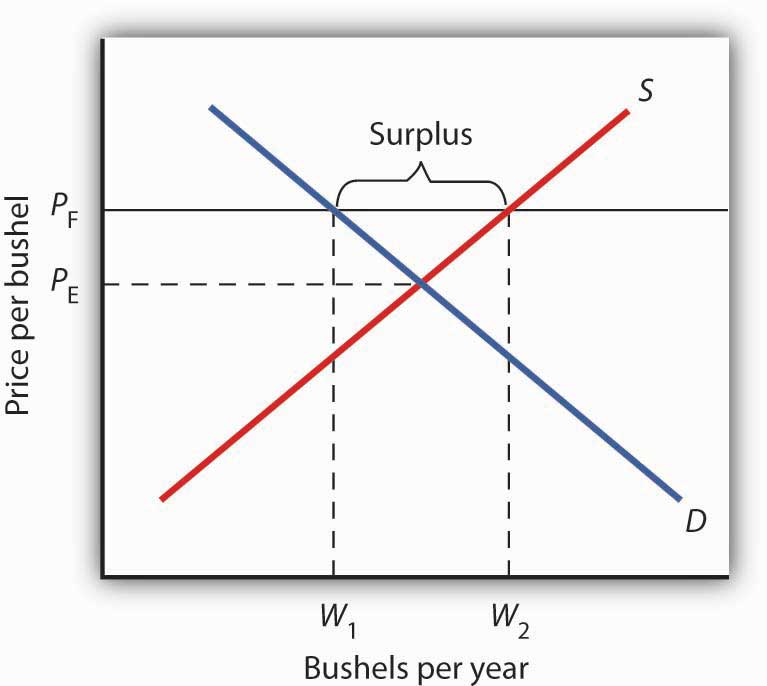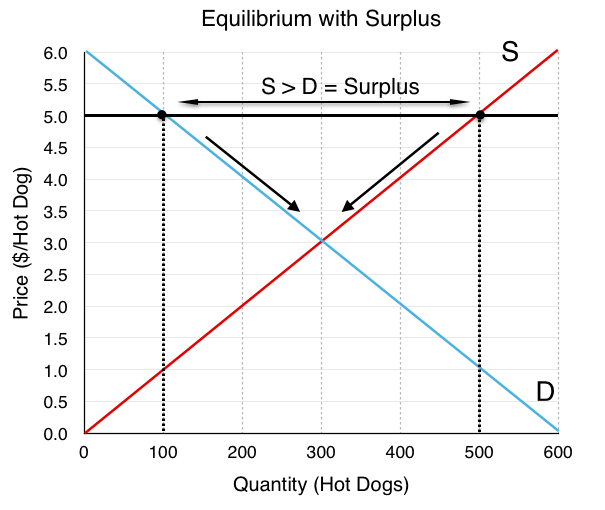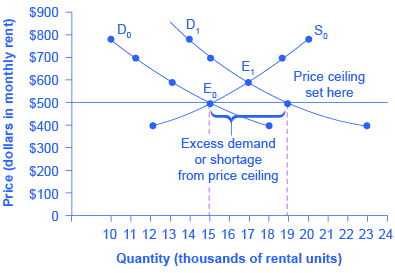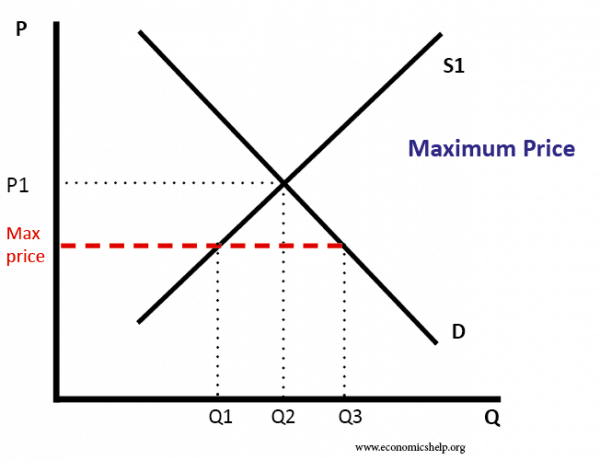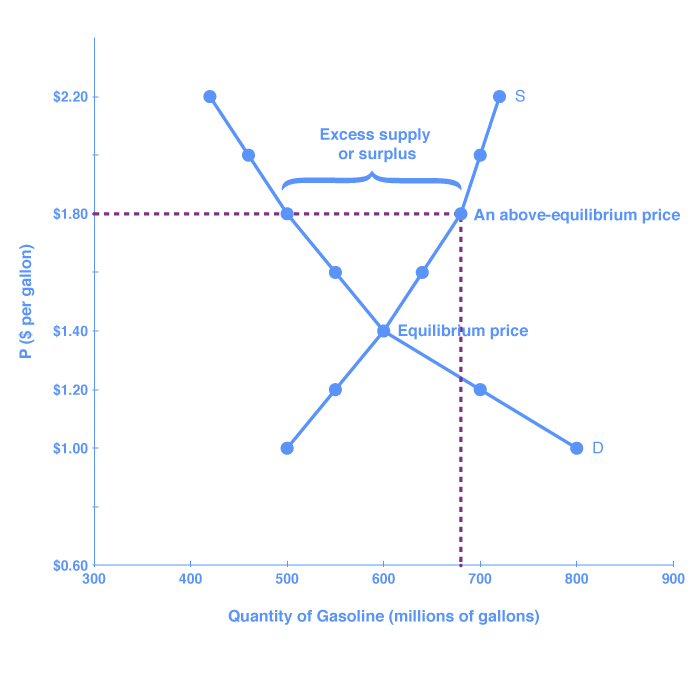Price Floor Government Buys Surplus
The governments buying is described as actions necessary to keep the price high.
Price floor government buys surplus. Price supports sets a minimum price just like as before but here the government buys up any excess supply. If successful the government buy surplus in a good harvest and then sell surplus if there is a shortage. For the price floor to be effective at raising sellers incomes the government has to do more than raise the price. They can set a simple price floor use a price support or set production quotas.
A price floor is the lowest legal price a commodity can be sold at. He price floor will not affect the market price or output. In some instances the government decides to buy the excess supply. The most common price floor is the minimum wage the minimum price that can be payed for labor.
The aim is to both stabilise prices and incomes for farmers and prevent shortages and high prices. The government also has to be ready to buy up the surplus. If the government imposes a price floor in the market at a price of 0 40 per pound then. What s to be done with this excess.
If a foreign government sets a price floor for coffee beans for example and then agrees to buy the surplus up to a certain amount it encourages growers to maintain their operations by placing. For example if a price floor were set in place for agricultural wheat commodities the government would be forced to purchase the resulting surplus from the wheat farmers thereby. Minimum wage and price floors. The price floor high price causes a surplus or excess supply.
Taxation and dead weight loss. Price and quantity controls. The expense is financed by the taxpayer and incurs a loss to society. It is effectively combining elements of maximum and minimum prices.
A price support scheme can also be an agreement set in order by the government where the government agrees to purchase the surplus of at a minimum price. How price controls reallocate surplus. Percentage tax on hamburgers. Price ceilings and price floors.
This is even more inefficient and costly for the government and society as a whole than the government directly subsidizing the affected firms. Price floors are also used often in agriculture to try to protect farmers. That is when the price floor increase the quantity supplied to qs the government will buy whatever producers producer but don t sell to consumers. All else equal if a price floor that is above the equilibrium price is imposed on a market and the government buys the surplus what will happen to consumer and producer surplus.
The government can store the surpluses or find special uses for them. This is the currently selected item. The effect of government interventions on surplus.
